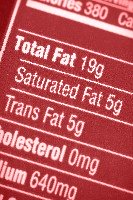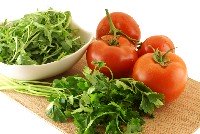|
What is Cholesterol?
So, what is cholesterol? We can hardly go a single day without the term cholesterol crossing our field of vision or hearing the word mentioned in connection with a healthy heart and a healthy diet.

Terms like this can become so common place that they are used freely but often never properly understood by your everyday man or woman on the street.
If you were talking with one of your friends about maintaining a healthy cholesterol level and they said to you.... "so...what is cholesterol anyway?" Could you tell them what cholesterol is...simply?
The term cholesterol is used pretty extensively to market certain food items and to present these products in the best possible light to entice us to buy them over and over again. This is probably where most people's familiarity with the term cholesterol comes from. Click here for help understanding your Cholesterol Results
The cholesterol message that you are most likely to be familiar with probably goes something like this....
Foods high in fat... and eating too much food that contains fat will also contain too much cholesterol which we have all been told is bad for our health. Does that sound about right? Is this actually so? What is cholesterol...really?
what is cholesterol primarily used for in your body?
Click here to have Cholesterol Levels explained
What is cholesterol Cholesterol is a member of a group of substances that are called fats. Another name for fats is Lipids. This term "lipids" gets used a lot in connection with cholesterol. Cholesterol is a special type of fat or lipid.
Normally, fat that we ingest as part of our food is used as a fuel source. Fat is also stored in the body if it is not required immediately as a source of energy. Yes.. fat is actually an important fuel source for your body. In spite of it's bad name, good fats are extremely important for your continued good health. Cholesterol though is a different type of fat that the body doesn't use as a fuel.
As a substance cholesterol is.. despite these qualities, cholesterol actually transports successfully in the blood stream. Blood of course is a watery substance! So how can a lipid or fat mix with blood? Cholesterol actually gets coated in a protein. A protein is a special kind of molecule made up of amino acids. Coating the cholesterol molecule in a protein gives you a new molecule called a lipoprotein. a Lipoprotein is really a transport molecule that allows cholesterol to be transported in the blood - around the body. It is quite likely that you have heard of two well known types of cholesterol or lipoprotein.
It may surprise you to know that Cholesterol is made mostly in the liver and intestine.
Your body makes around seventy five percent of its total cholesterol needs. The other twenty five percent comes from the food you eat.
Your food generally contains elements of fats, protein, and carbohydrates. The cholesterol that your body makes is made from elements in these food sources.
When I talk about your body making cholesterol from these food sources, I'm actually saying that there are specific elements that your body uses to make cholesterol from these three common components of food... fats, protein and carbohydrates that don't contain cholesterol themselves. However, there may be dietary cholesterol present in these food categories as well, depending on their source.

What is Cholesterol Doing in Your Food? Cholesterol is already present in some food sources....The highest Cholesterol levels are present in foods of animal origin.
As a dietary source...in food...cholesterol is mostly present as an animal fat.
Cholesterol is found in all animal cells and in animal-based foods. Cholesterol is present in animal flesh for the same reasons it is present in yours. It is also present in much smaller amounts in some plant based food sources as a sterol.
Click here for info on Foods that Lower Cholesterol

There is some level of debate surrounding cholesterol in plants and whether you can raise your cholesterol level by eating certain plant based foods.
Plant foods do contain sterols. The chemical structure of sterols is very similar to that of animal-based cholesterol.
The thing to remember here is that the sterol level found in plant tissue is significantly less than the cholesterol level found in animal tissue and animal derived products.
The bottom line?... when considering your diet; always try to maximize your fruit and vegetable intake while keeping your foods of animal origin to modest levels.
Most dietary oils are from vegetable or plant based sources. There will likely be very low levels of cholesterol in oils of plant origin.
However, because the high level of a certain type of fat called saturated fat in the diet actually raises blood cholesterol, some vegetable oils that contain high levels of saturated fat...like coconut and palm oil could potentially raise your blood cholesterol level. Olive oil contains very low levels of saturated fat and zero or near zero cholesterol...I always recommend people use this.
Unfortunately Others who produce high amounts of cholesterol naturally...sometimes higher than what would be considered normal..while also ingesting it in their foods...end up with a much higher than desirable blood cholesterol level. So, in summary, What is cholesterol?
Cholesterol is... and...
|




 Generally, the label of a product will not show the cholesterol level if it is below 2mg/serving.
Generally, the label of a product will not show the cholesterol level if it is below 2mg/serving. 